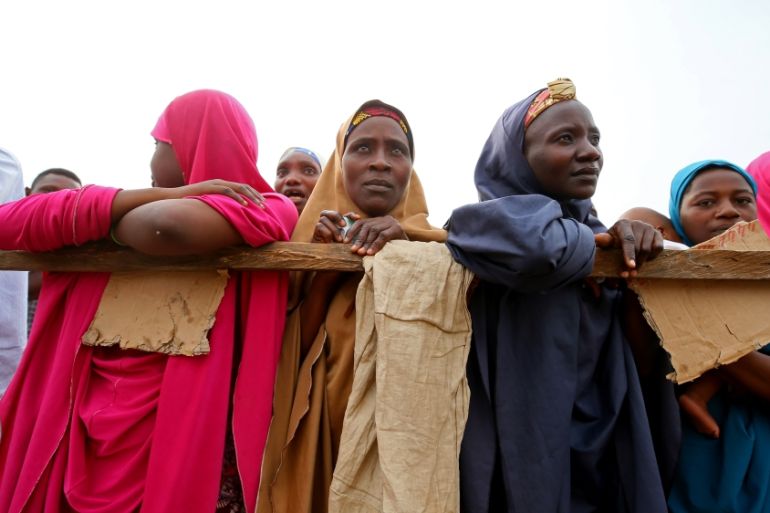Voter apathy apparent in Nigeria’s local elections
With irregularities and violence, governorship and state assembly elections are marked by low voter turnout.

Abuja, Nigeria – Millions of eligible voters in Nigeria have stayed away from casting their ballot to elect governors and state assembly members, amid reports of disturbances.
Saturday’s election comes two weeks after Muhammadu Buhari secured a second term in a delayed presidential vote.
Keep reading
list of 4 items‘Absolute power’: After pro-China Maldives leader’s big win, what’s next?
Solomon Islands pro-China PM Manasseh Sogavare fails to secure majority
Pro-China party on course for landslide victory in Maldives election
“I came out to vote but the place is empty as you can see and the low turnout shows a major trust deficit about the electoral process,” housewife Mary Suleiman told Al Jazeera.
“Abuja residents are not as interested in the local council elections as compared to the presidential polls, but the outcome of the last polls led to today’s turnout,” Suleiman said.
About 120,000 polling stations opened at 07:00 GMT across Africa’s most populous nation, but idle electoral officers spent much of the day waiting for voters in the capital, Abuja, and across the country.
More than 84 million voters registered to take part in the elections but only 35 percent of that number took part in last month’s presidential and National Assembly elections.
Thousands of candidates are vying for the 1,082 positions available, including 29 governorships, 992 seats in state houses of assembly and 62 in area councils in the capital Abuja.
A total of 1,063 candidates are running for the governorship seats in 29 states.
|
|
Voting was delayed in some cities due to the late arrival of materials, according to election monitors, and there were allegations of vote rigging in southern Abia state.
Election observers also reported incidents of vote-buying across the country as politicians tried to sway voters.
Violence and armed thugs
In Lagos, the commercial capital of Nigeria, some voters also stayed away from Saturday’s exercise after the February 23 polls were marred by violence and armed thugs burned and snatched ballot boxes.
“I did not vote because last two Saturdays, the violence in my polling unit scared me away. After voting [thugs] came and burned our result sheets,” Chinedu Obiora, a businessman told Al Jazeera.
“I don’t trust the system to conduct the elections and I couldn’t have risked my life as a result of today’s exercise, I stayed home with my family monitoring on TV,” Obiora said.
|
|
There appeared to be far fewer people taking part in Saturday’s governorship and state assembly polls compared with the presidential and National Assembly elections when electoral officers in some polling areas were overwhelmed with large numbers of voters.
“The turnout of voters in the five polling units we visited today was abysmal, at some polling units, the election officials especially the party agents, were more than the voters,” Chioma Agwuegbo, an Election Observer told Al Jazeera.
“Voters, especially young people, feel betrayed by the electoral commission. They believe that their votes did not count in the elections from February 23, and don’t trust the system enough to come out again,” Agwuegbo said.
The main opposition presidential candidate, Atiku Abubakar is challenging the outcome of the recently-concluded presidential election which he claims was rigged in favour of Buhari.
“There is low voter turnout and I believe it’s because of the last election which was marred by a lot of irregularities,” Atiku told journalists after voting in his Adamawa home in northeast Nigeria.
Atiku has approached the court to begin the process of auditing the results of the presidential vote which he says were manipulated.